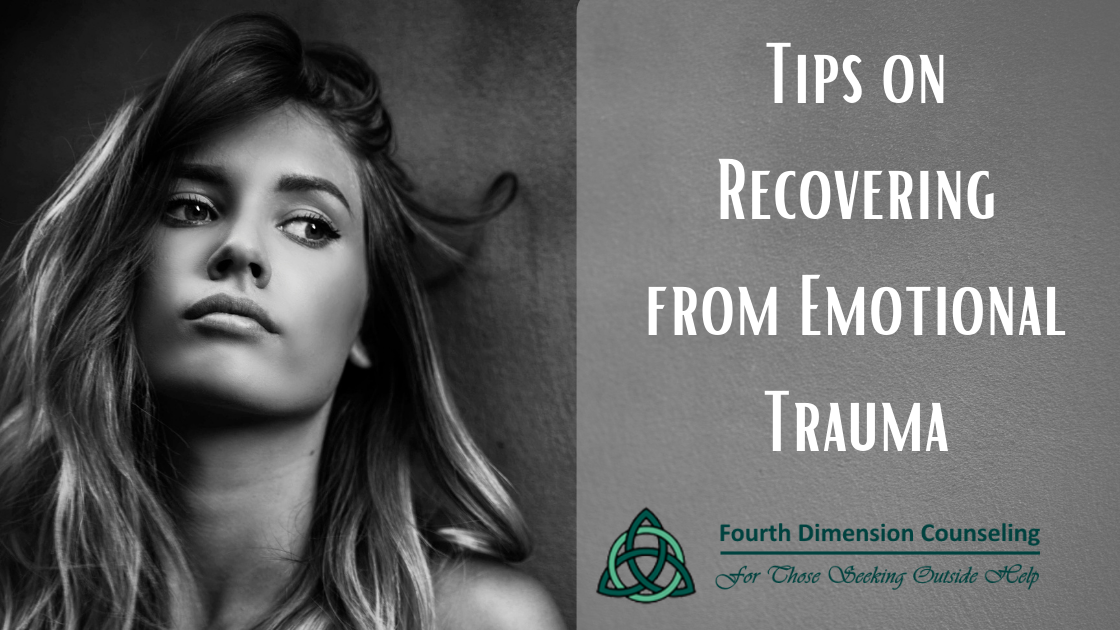
Emotional Trauma can often feel like the end of the world, and it’s more common than you may think, the first step is to know you aren’t alone. Humans live on massive emotions. Some of these cause euphoria, while others can be damaging. The feeling of joy, love, and being alive is a connection of massive positive emotions; unfortunately, other feelings of sadness, death, stress, anger, fear, etc., can become traumatic events causing severe emotional repercussions. Many people find the phase challenging to overcome. Thus, the recovery process requires effort, commitment, and attention. However, if you are able to overcome the process, you’ll return to your mind, live a happy life, and have good mental health. You must be able to take active steps, and here are some tips for recovering from emotional trauma.
What Is Emotional Trauma?
You may occasionally have or always experience feelings of distress, helplessness, fear, despondency, or an emotional breakdown. Emotional trauma is the primary destroyer of a sense of belonging and security. The feeling cause panic, anxiety, and suicide and change your understanding of the world. The body uses fight or flight mode to counter this feeling trying to restore you to immediate safety and survival. However, a prolonged attack can lead to intense and painful emotions in a person.
Tips for Healing From Emotional Trauma
Patience, self-compassion, perseverance, persistence, and support are the armor against emotional trauma. Here are a few ways to deal with the process.
- Start the process
Emotional trauma causes isolation and distancing. The first step is to start the healing process by making a conscious decision. Taking the healing journey by the horn will create space and energy to recover. People make common mistakes, like trying to evade traumatic memories or events. Suppressing the motion can cause unhealthy coping mechanisms in the body. However, the journey may be scary trying to face your negativity alone. Eventually, you have to face these fears to heal from the sadness.
- Don’t be judgemental
Don’t judge yourself; instead, be mindful of what you feel. The method is a fast relief from traumatic incidents. Self-judgement is part of the healing process but needs to be fought at a certain time. Criticism makes you feel hurt, guilty, shame, and other negative energy. A traumatic event rises all emotions, and it’s alright to fall in; if you feel like crying, then cry; you might feel better. However, you shouldn’t rely on this method for long. In essence, settling your feelings will help the recovery process.
- Seek support from your loved ones.
Traumatic events need social support, and loved ones are in the best position to shower such feelings. Your family or friend can listen when you need to talk or accompany you on this life-changing journey. Their presence will prevent self-isolation resulting from emotional trauma.
- Talk to a therapist.
Therapy is a psychological way of dealing with emotional trauma. The process works on mental health, creating a safe environment. Traumatic events may lead to permanent changes in your brain or your thinking. But you can control your thoughts and behaviors by understanding some factors like your strengths, weakness, and triggers. Counseling is a time to work on coping skills to beat emotional stress.
More Advice:
- Do I Need to See a Counselor for Love Addiction?
- Simple Ways to Reduce Stress
- Sex Victims Can Experience PTSD
- Emotions and How to Process Them
- Sex Addiction Counseling
- How Do I Know it’s Time to Get professional Counseling?
- How to Heal from Betrayal Trauma
- What is PTSD? – (Government Help)
- The Mental Health Effects of Sexual Abuse
- The 4 Types of Intimacy
- 5 Ways to Reduce Stress
- What is Co-Dependency?
- How Same-Sex Couples Counseling is Different
- How to Know it’s Time to Get Mental Help
- How to Find a Great Relationship Counselor
- What if I Can’t Get in to See a Counselor?
